MILL GREEN NATURE RESERVE
CANNOCK

But to show that it's a real winter we need to include some pictures with -
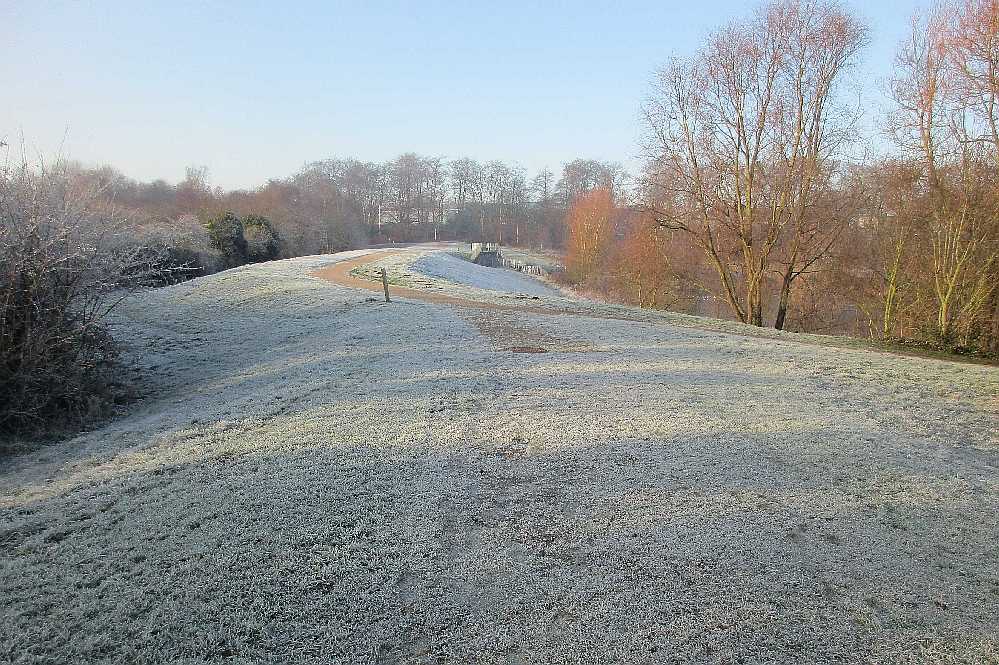 |  | |
| Frost (east end of the dam) | and | Snow (west end of the dam). |
Life has to continue in all weathers of course.
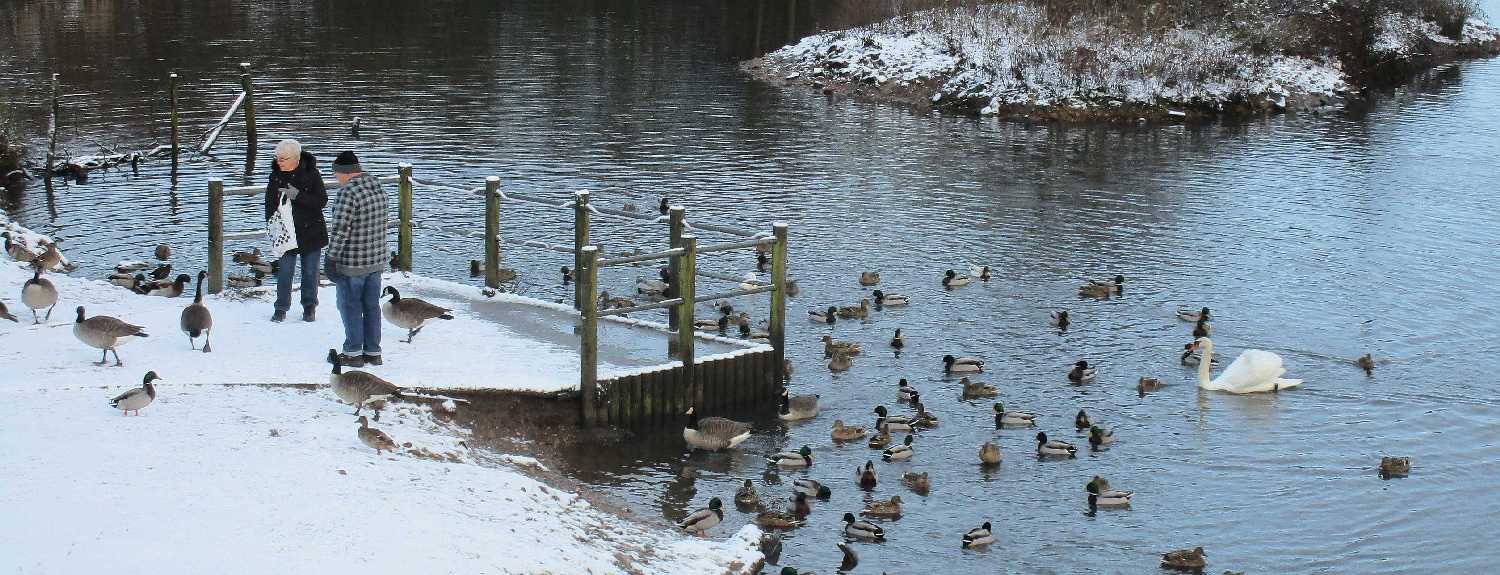
Generous visitors feed the birds on the lake.

White ground seen through winter-bare trees gives views not normally visible. :: The main paths are well patronised at all seasons. :: Squirrels are active: they don't hibernate. (See snow on the holly leaves.)
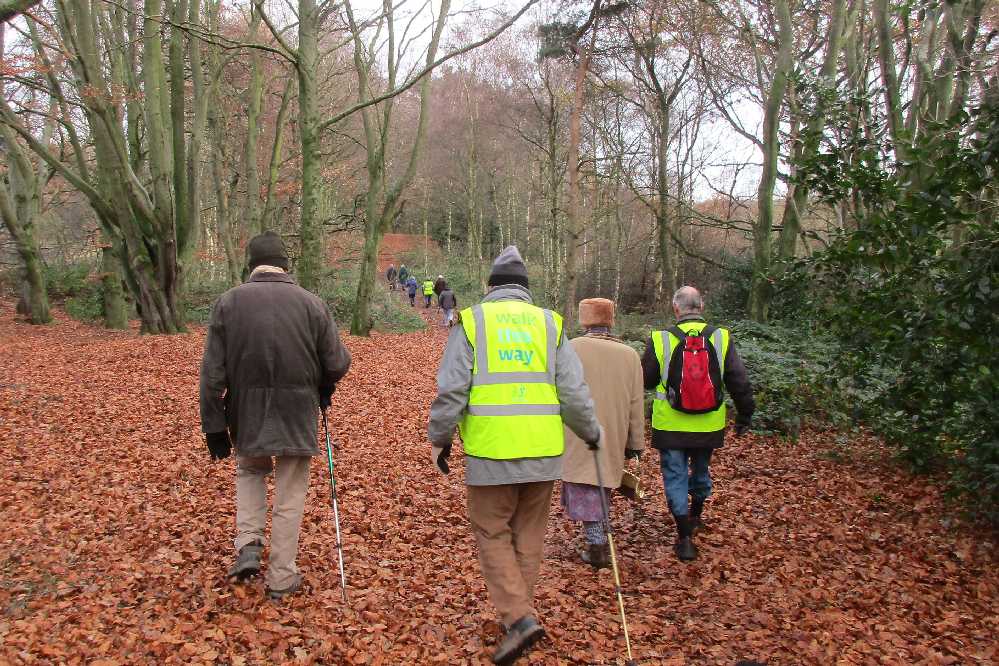 | 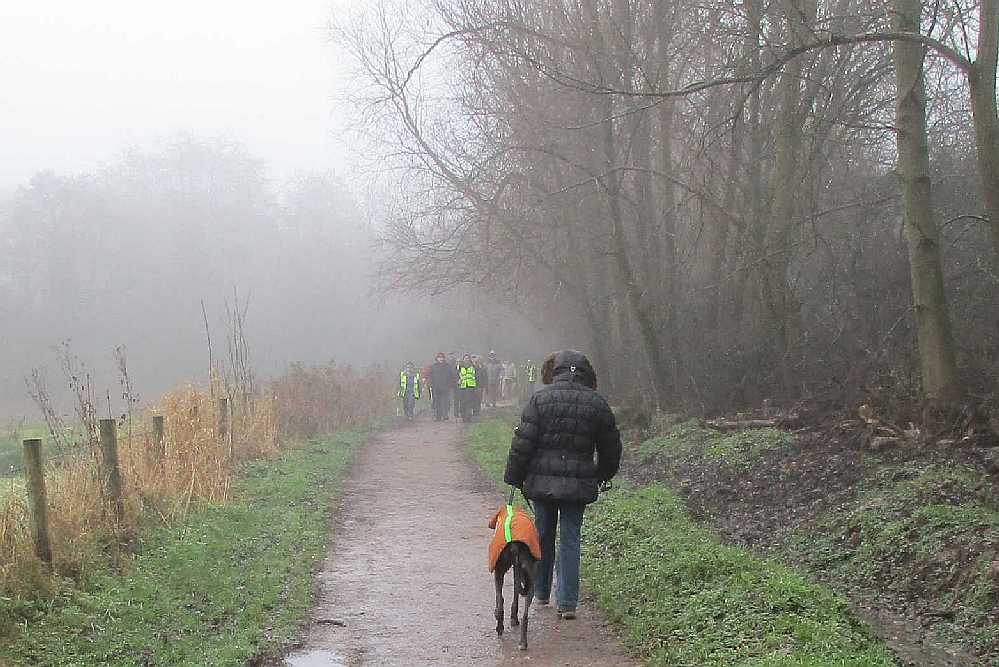 |
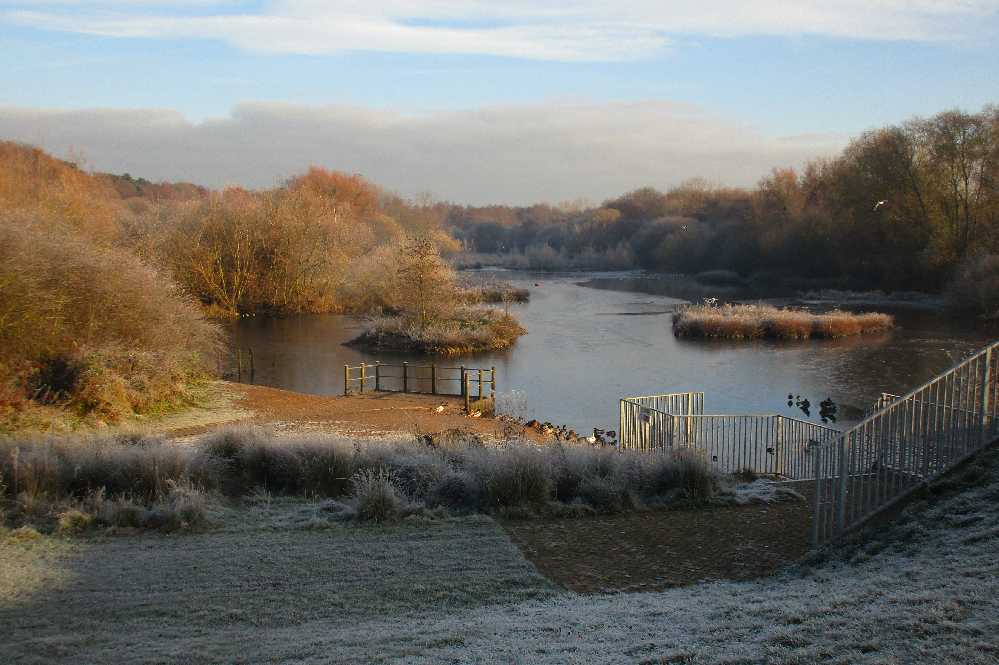 | 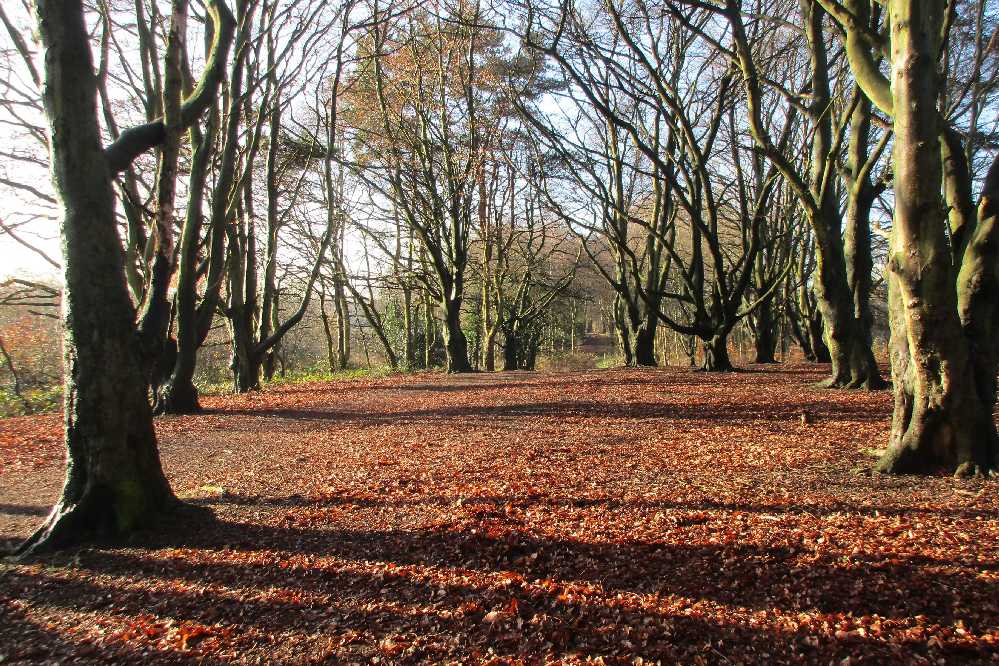 |

Scenic scenes are not confined to summertime!
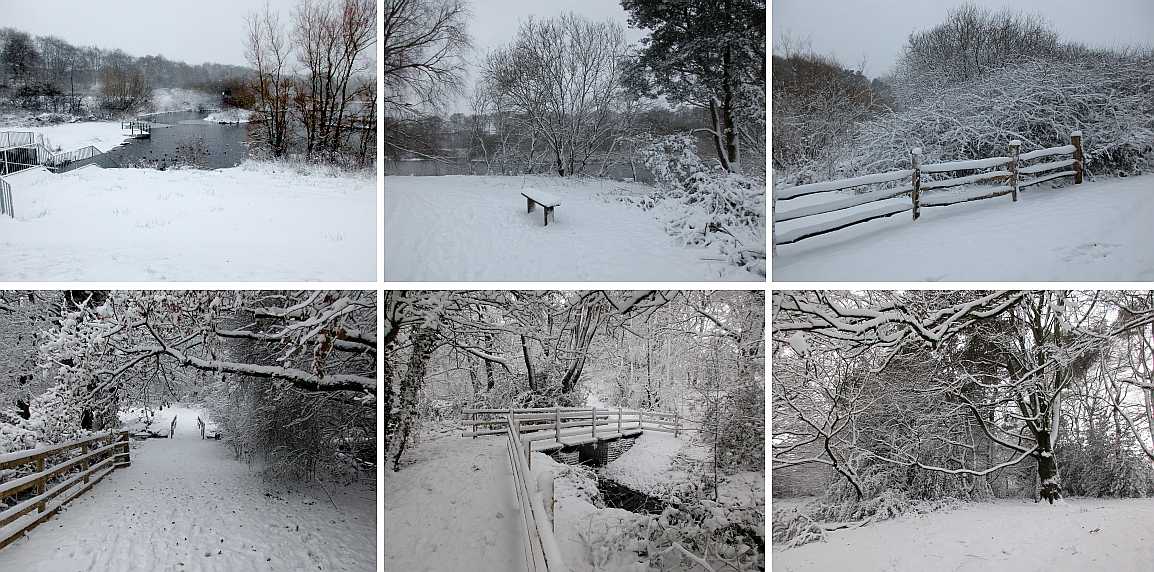
We had some 'proper' snowfall in early December of 2017 -
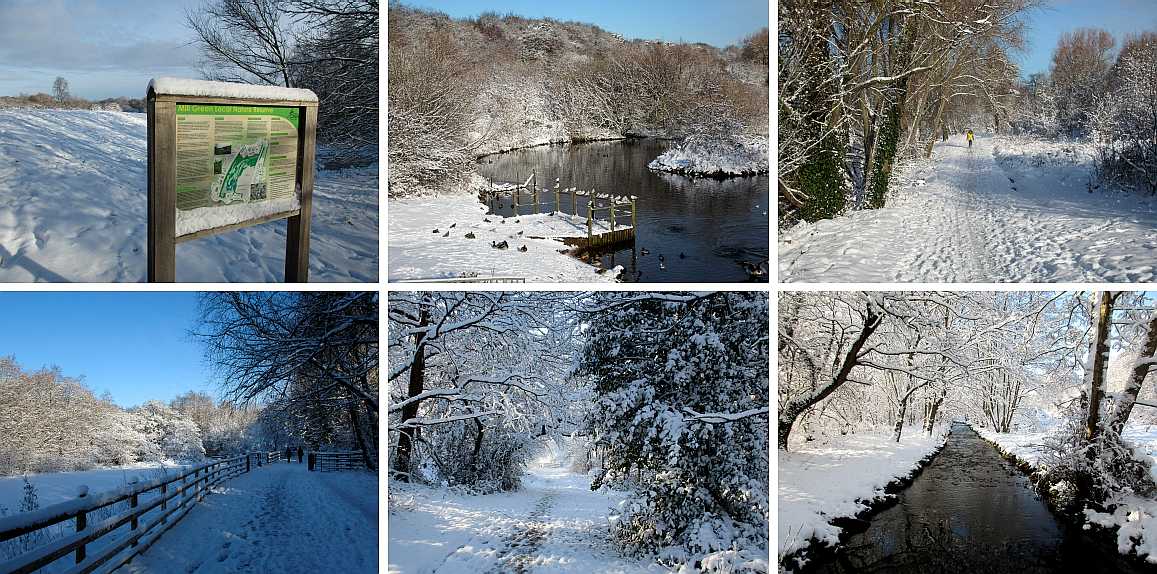
- followed by blue skies and sunshine.

Vegetation is not dead! Nature is all set to restart at the turn of the year: the seedlings were photographed on the 31st of December. :: There are still a few berries to be seen, prickle-free holly in this case. :: And yet more 'autumn' fungi appear on logs and twigs, such as these 'Jews Ears'.
(And nearly all the photos on the "Minor Vegetation" page were taken in January.)

There are flowers to be seen in January, including ivy, gorse and of course welcome snowdrops.

Flowers on trees are represented through the winter by the catkins on willow and hazel - and poplar, birch and alder too.
 | 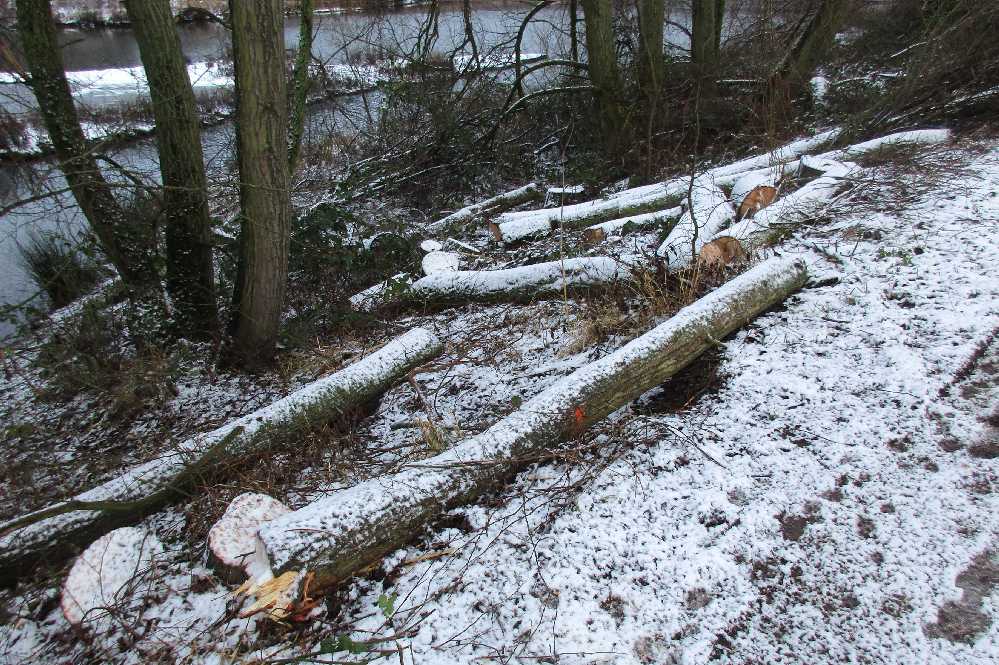 |

According to Keble Martin, Wikipedia and what-not, these 'lesser celandines', Ranunculus ficaria (renamed Ficaria verna), are supposed to flower "March to May". These were photographed on the 17th and 19th of February 2017. What's going on? Global warming? Cannock warming?

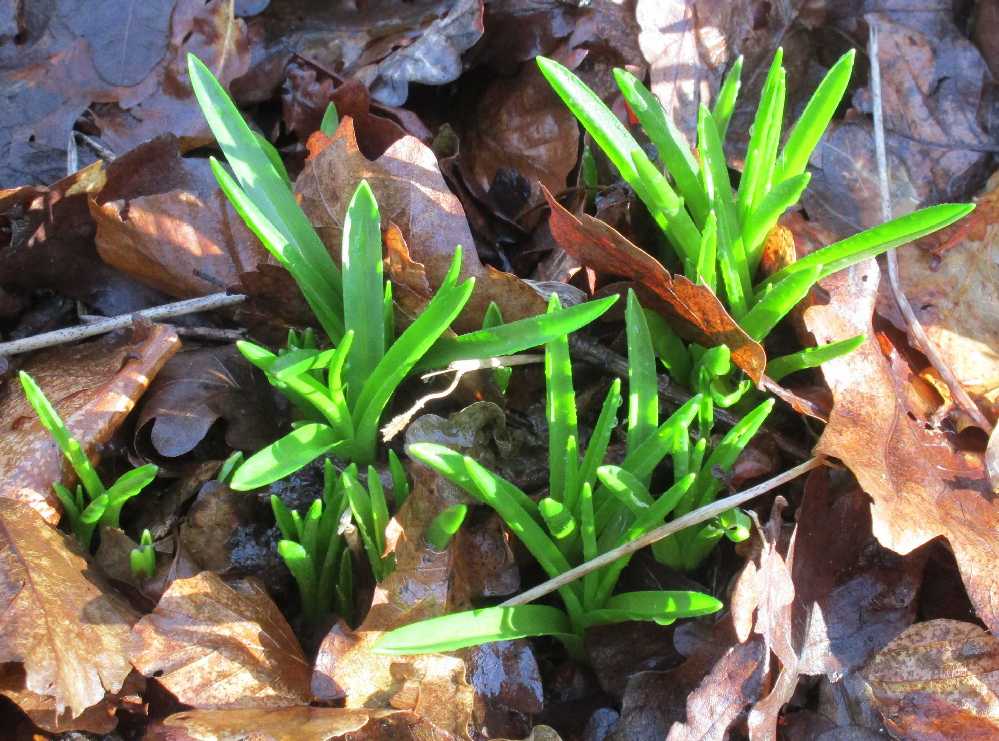 |
So when does winter end? One possible calendar deadline is the very end of February. At that stage we have a few tree and bush buds beginning to become active, with a tiny minority showing off their fresh green leaves. At the same time our oakwood leaf litter is being disturbed by up-thrusting spears holding promise of bluebells to come. And coincidentally, squirrels enjoy early sunbathing whenever the opportunity offers. |

<<<<<<<<<<+>>>>>>>>>>
Click to return to the Home Page, or -
Animal Life
Trees • Flowers • Fungi • Minor Vegetation
Spring • Summer • Autumn